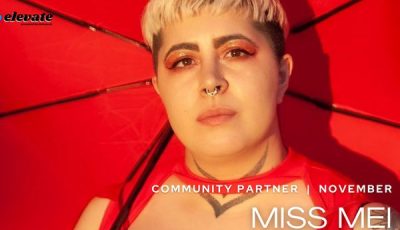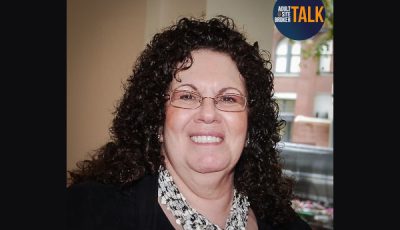Baltimore Curfew Bill: “You Can’t Just Take Our Businesses”
 After complaints about the Baltimore police department being unable to control violent crime in what is known as “The Block” – 400 E. Baltimore Street – Senate President Bill Ferguson introduced Bill 222, a controversial piece of legislation which would slap a curfew of 10pm on any establishment with an adult entertainment license. The drastic measure was sure to be the death knell for these businesses which do most of their commerce at night, yet strip club owners claimed they were not even allowed a seat at the negotiating table.
After complaints about the Baltimore police department being unable to control violent crime in what is known as “The Block” – 400 E. Baltimore Street – Senate President Bill Ferguson introduced Bill 222, a controversial piece of legislation which would slap a curfew of 10pm on any establishment with an adult entertainment license. The drastic measure was sure to be the death knell for these businesses which do most of their commerce at night, yet strip club owners claimed they were not even allowed a seat at the negotiating table.
Sound familiar?
Brick-and-mortars being denied a voice in their survival is pretty darn close to online adult businesses being shadow banned or shut down by social media platforms. Of the thirteen strip clubs, nine stated that they were left out of the talks which took place in Annapolis and included the Baltimore City Police Department and Senate President Bill Ferguson, who said: “We never had any desire to shut down the establishments on the block. We had to make sure we got their attention and bring them to the table where we can negotiate.”
Really?
Attorney Thiru Vignarajah, who is representing the business owners, stated it plain and simple to FOX45: “Obviously, the Senate President is trying to save face. The right way to do this is not to try to further extort the business owners and not try to engage in private negotiations in closed rooms.”
Adding insult to injury, Senate President Ferguson posted on social media a few weeks later that the curfew proposal had been dropped as more negotiations with club owners yielded a deal. The new “compromise” would allow them to stay open but would shift the cost of extra police and patrols onto their shoulders. John Sachs, owner of Chez Joey, told Baltimore Brew that he talked to 11 of the 13 businesses affected and none of them had signed off on the agreement.
Attorney Frank Boston, who represents Hustler Club and two others, said he was invited to the negotiations and accepted it on behalf of his clients. He claimed that an effort had been made to contact the other owners “but we knew we were never going to get them all.” He is right, he wouldn’t “get them all,” because this is no compromise. Why should adult establishments be shaken down to pay for extra services just to keep their businesses open? Don’t they already pay taxes to cover the police just like everyone else?
According to club owners and employees, Baltimore is always trying to find a way to shut down The Block — and the Bill is just one more attempt to do so under the guise of cracking down on crime. William Wantland, co-owner of Club Pussycat, told WBALTV 11: “Over the years — I’ve been here 37 years — it’s constant. It’s always something coming up. They’re trying to close us. You can’t just take our businesses.”
And indeed, with the proposal of the Bill the city was more or less blaming adult clubs for the 831 police service calls in 2021 which included shootings and robberies, just like internet laws more or less blame online adult businesses for sex trafficking, underage users, and a host of other problems. The parallel of club owners being punished monetarily, as if they themselves have committed the offense, is eerily similar to adult online businesses being punished monetarily by regulations such as SESTA/FOSTA — and, should it become law, the EARN IT Act currently under debate in Congress.
Investigative work done by FOX45 found that of those 831 service calls, most were low priority with only 65 being deemed high priority. In comparison, there were 108 high priority calls – 60% more – from the 1500 block of Russell Street where the Horseshoe Casino does business. Baltimore did not threaten Russell Street with a curfew or back them into a corner to pay for extra police but hey, its gambling not sex, right? In addition, Attorney Vignarajah also pointed out that there have been 50 homicides this year and not one happened in The Block.
For now, the situation is still up in the air with pushback on the compromise by club owners. Their struggle is a reminder that whether the adult establishment is traditional storefront or online, the discrimination we face is the same. Both fight unfair legislation meant to shut them down and both are all too often denied a voice in shaping the regulations that are applied to them. It’s time for lawmakers to stop singling out the adult industry for all the ills of society and find themselves a new scapegoat.
Image by Mali Maeder from Pexels













